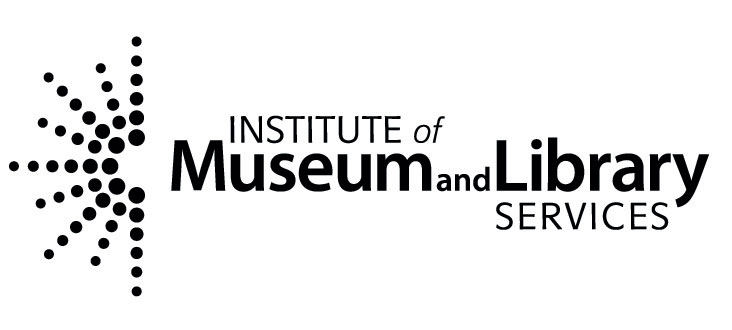
Children's Librarians of NH (CLNH)
This list is used by the Children's Librarians for sharing resources and opportunities.
The purpose of this list is to provide the NH school library community a forum for discussion and a means for dissemination of school library-related issues.
Senior Services Group
This list is used by the Senior Services Group for sharing programs and ideas to meet the needs of our older adult library patrons.
YALS-L
A list for New Hampshire librarians serving teens
Nhais-l
This list is for general discussion of library issues among NH libraries. Interlibrary loan requests should NOT be sent here, but should go to the NHAIS-ILL list. Announcements of items offered or needed should NOT be sent here, but should go to the YardsaleNHAIS list.
Nhais-ill
This list is for discussion related specifically to interlibrary loan among NH libraries. Requests for loans, based on NHU-PAC holding information, may be sent to this list.
YardsaleNHAIS
This list is for NHAIS libraries to offer duplicate/discard materials to each other, for sale or for free, and to ask for things they want for their libraries.
NHDB
A list for librarian members of the NH Downloadable Books Consortium.
PUBYAC
A great source for program ideas, reference stumpers, and solutions to library problems
The Library Trustee Manual and other resources can be found online on our website https://www.nhlta.org/. NHLTA members receive a quarterly newsletter and have the opportunity to attend workshops and an annual themed conference designed to address current issues facing public libraries.
Accessible and practical information about copyright – its protections, its limitations, and its role in encouraging creativity.
FREE lesson plans, videos, slides, visual aids and a professional development course for teachers can all be found at

Michelle Levell from Granite State Home Educators joined us on May 4, 2021 Tuesday Together Talk to chat about Granite State Home Educators, an all-volunteer, nonprofit homeschool support organization that serves New Hampshire families who choose to home educate their children.

One of the first tips we learn when reading during a story time is to share the name of the author and illustrator of the book. Don't let being unsure of how to pronounce their names stop this really important part of story time from happening. See the Author/Illustrator pronunciation guide at TeachingBooks.net, where you can hear the authors say their names.

Monthly e-zine with free PD offerings, funding opportunities, program ideas and more for NH Librarians.
8/28/25 The NH State Library is OUT of bags---Please do NOT send any orders.
PLEASE NOTE THAT ORDERS NOW GO TO CIRCULATION AT THE NH STATE LIBRARY - JANUARY 2025
November 20, 2024
THE NEW 1,000 BOOKS BEFORE KINDERGARTEN BAGS ARE IN!

As the frequency of severe weather events increases around our world and we're all trying to figure out how to prepare for and recover from these events, those of us who work with younger children have seen a lack of resources to help share this topic with them. With funding from a NASA grant through the Gulf of Maine Research Institute and the Learning Ecosystems Northeast project, The Maine State Library has partnered with The Healing Library to create a brand new toolkit for younger children and their caregivers to talk about severe weather events.
The toolkit is available for FREE to download and the kits to circulate can be created at your library or purchased from The Healing Library.
See pdf for presentation to NH Librarians
Here is the link to the printable posters:

If you work with children and youth, you can help them develop the building blocks of financial capability—at school, at home, and in the community. CFPB's tools and resources can help you teach financial literacy across the curriculum, even if you’re new to the topic.
https://www.consumerfinance.gov/consumer-tools/educator-tools/youth-financial-education/
The Money Monsters are a group of creatures who are new to our universe. That means they need to learn about many important things like school, friendship, and financial literacy. https://orders.gpo.gov/CFPBYOUTH/CFPB_YOUTH.aspx
EVERYONE in NH is a Mandated Reporter.
Using video apps and other technologies for telehealth can create risks to the privacy and security of your health information. This can include when you are accessing telehealth services on a website, through an app, or even through a patient portal. Consider these tips to protect and secure your health information.
https://www.hhs.gov/hipaa/for-professionals/privacy/guidance/telehealth-privacy-security/index.html
Exciting news for New Hampshire library lovers—the University System of New Hampshire libraries are now offering free borrowing services to all NH residents! The libraries included in this program are UNH Durham and Manchester campuses, Plymouth State and Keene State.
“We welcome visitors to our campus libraries, and now we are extending free loans of books and other physical objects to Granite State residents. We hope more people will take advantage of the wealth of information available at our public college and university libraries across the state,” says Tara Lynn Fulton, Dean of the UNH Library.
Whether you want to visit, browse the stacks, or request a free borrower’s card, here are 5 things you should know before you start borrowing.
https://library.unh.edu/blog/2023/07/free-borrowing-usnh-libraries-nh-residents
PaintNPlay from the National Gallery of Art
Video of the short zoom informational
https://youtu.be/lwqzZavmyaM?si=UlgXQu_sW8iV_wOb
Website:
https://www.nga.gov/games/paint-n-play/
https://www.nga.gov/games/paint-n-play/kiosk/ (without right side options)
Please send feedback to John Gordy at j-gordy@Nga.gov




This project was made possible in part by the Institute of Museum and Library Services and the New Hampshire State Library.